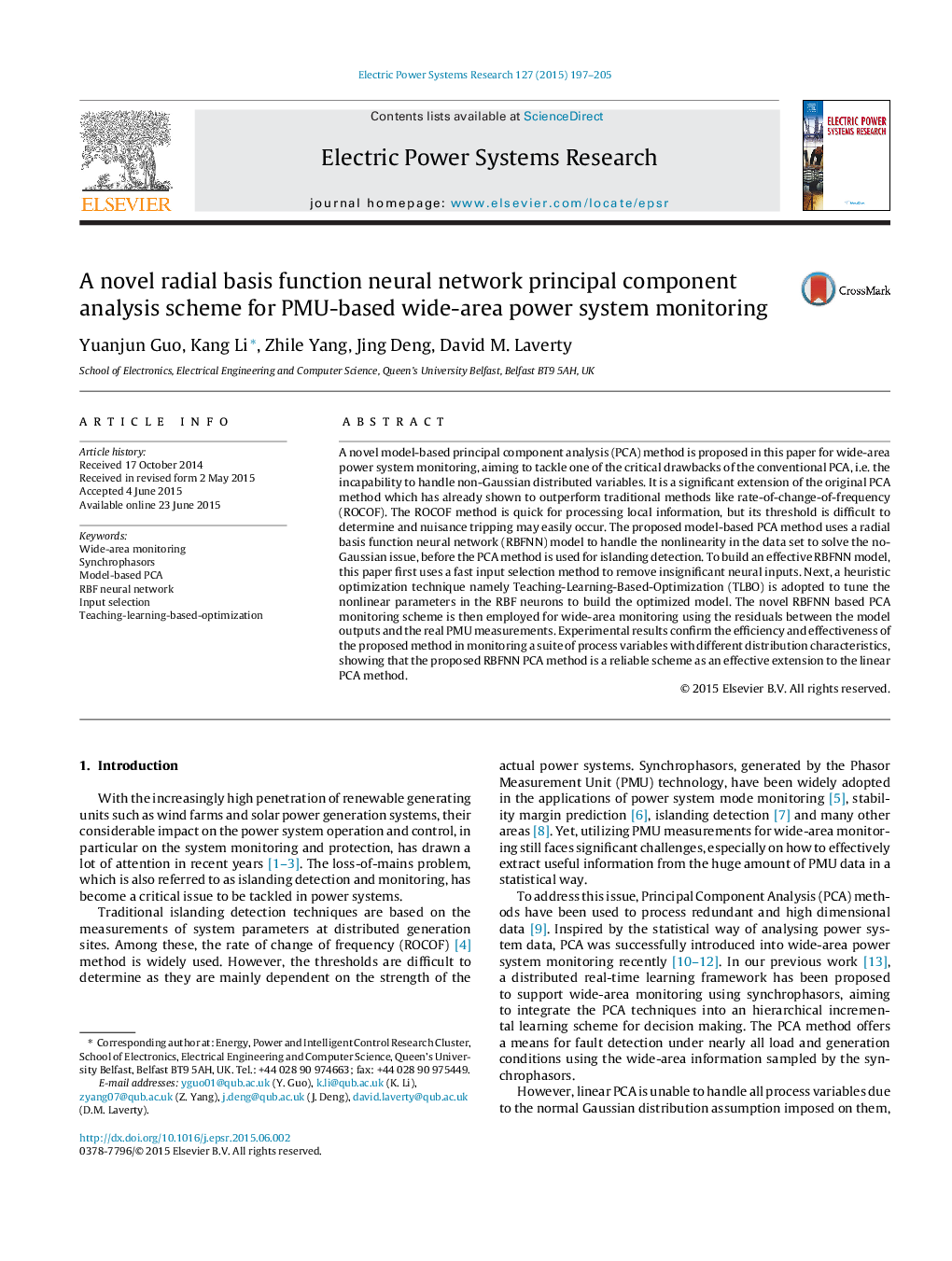| Article ID | Journal | Published Year | Pages | File Type |
|---|---|---|---|---|
| 704633 | Electric Power Systems Research | 2015 | 9 Pages |
•Automatically determine thresholds using PCA method for islanding detection.•Neural inputs reduced by the fast input selection algorithm.•Model accuracy increased by optimization of the RBF network parameters.•RBFNN based PCA utilizes the non-Gaussian variables of the PMU measurements.•Simple monitoring chart, easy to implement.
A novel model-based principal component analysis (PCA) method is proposed in this paper for wide-area power system monitoring, aiming to tackle one of the critical drawbacks of the conventional PCA, i.e. the incapability to handle non-Gaussian distributed variables. It is a significant extension of the original PCA method which has already shown to outperform traditional methods like rate-of-change-of-frequency (ROCOF). The ROCOF method is quick for processing local information, but its threshold is difficult to determine and nuisance tripping may easily occur. The proposed model-based PCA method uses a radial basis function neural network (RBFNN) model to handle the nonlinearity in the data set to solve the no-Gaussian issue, before the PCA method is used for islanding detection. To build an effective RBFNN model, this paper first uses a fast input selection method to remove insignificant neural inputs. Next, a heuristic optimization technique namely Teaching-Learning-Based-Optimization (TLBO) is adopted to tune the nonlinear parameters in the RBF neurons to build the optimized model. The novel RBFNN based PCA monitoring scheme is then employed for wide-area monitoring using the residuals between the model outputs and the real PMU measurements. Experimental results confirm the efficiency and effectiveness of the proposed method in monitoring a suite of process variables with different distribution characteristics, showing that the proposed RBFNN PCA method is a reliable scheme as an effective extension to the linear PCA method.
